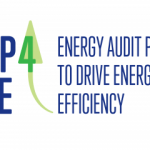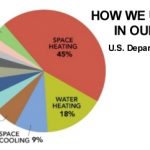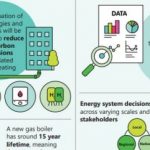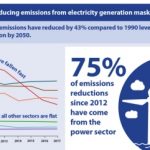The world is changing at an increasingly rapid pace. This only reinforces the need to be prepared for future conditions. One proper solution would be to future-proof buildings and cities. With more than two thirds of the world’s population to live in urban areas by 2050, now is the time to reconsider the role cities can play in the shift towards a more sustainable society. In order to build up resilience to the adverse effects of climate change, … [Read more...]
The greenest energy is the energy we don’t use
As COP26 comes to a close, Martin Rossen, Senior Vice President, Head of Group Communication and Sustainability at Danfoss reminds us in a powerfully persuasive way why the most direct route to net-zero is managing consumption. Inspired by a glaring omission by Bill Gates in his recent book, Rossen draws our attention to the futility of developing new tech if we don’t prioritise making use of readily available energy efficiency solutions. … [Read more...]
A toolbox for energy efficiency in the cold chains of the food and beverage sector
ICCEE is a 3-year project launched in September 2019 and funded by the European programme Horizon 2020, which aims at turning energy efficiency opportunities of food and beverage companies into actual investments and allowing them to find opportunities to improve the cold chain with a holistic approach. With this aim, a full capacity building programme dedicated to improving the energy performance through direct training and e-learning was … [Read more...]
Energy Efficiency solutions for electrification can help deliver the Transition – with the right policies
The latest climate assessment from the IPCC has underlined the urgency for the energy sector to make the transition quickly and effectively to net zero. The general drive towards mass electrification is a vast and complex undertaking but one that is made more manageable by the innovative development of energy efficient solutions for the built environment. Vesa Laisi, President at Danfoss Drives, outlines how cutting edge technologies are ready to … [Read more...]
Implementation map on barriers and success factors for E1st in buildings
The research in this report by the ENEFIRST project builds on the report ‘Priority areas for implementing Efficiency First’ which identified policy approaches for implementing the E1st principle in the policy areas of buildings and related energy systems (power sector and district heating) with the potential to be fully implemented across the EU. This report analyses in three steps the barriers and success factors specific to nine of these … [Read more...]
European Commission should intensify political action in 2021 to align Renovation Wave with EU Climate Targets, BPIE says.
In its new analysis, BPIE (Buildings Performance Institute Europe) urges the European Commission to intensify political coordination and coherence in the implementation phase of the Renovation Wave strategy, to ensure full decarbonisation of the EU building stock in line with EU climate goals. … [Read more...]
Long-Term Renovation Strategies not on track to deliver climate-neutrality by 2050, indicating need for full revision of Energy Performance of Buildings Directive
A new report by the Buildings Performance Institute Europe (BPIE) finds that EU Member States continue to underplay the role of the building sector in delivering a climate-neutral Europe. … [Read more...]
Retail real estate needs Paris-Proof decarbonisation strategy to ensure contribution to global and EU emissions targets, the Buildings Performance Institute Europe says
The report marks the launch of Paris-Proof Retail Real Estate, an initiative that looks to develop a vision and strategy to support the European retail real estate sector reach net-zero carbon emissions by 2050, in line with the Paris Agreement. … [Read more...]
SMEs key to Europe’s decarbonisation efforts
The Horizon 2020 funded project, LEAP4SME – Energy audit policies to drive energy efficiency – aims to enhance effective policies for small and medium-sized enterprises (SMEs) to undergo energy audits and implement cost-effective, recommended energy-saving measures. According to the International Energy Agency (IEA), SMEs account for at least 13% of global final energy consumption annually and energy efficiency improvements are to … [Read more...]
Guiding SMEs and national authorities through the energy transition by taking profit of multiple benefits and energy management approaches
Improving energy efficiency is the most cost-effective way to reduce energy-related emissions, improve economic competitiveness and increase energy security. In the European Union, several pieces of legislation aimed at guiding states and companies, regardless of their size, on ways to improve their energy efficiency: one of them is the Energy Efficiency Directive, establishing a common framework of measures and requirements with the goal to … [Read more...]
UK: Despite progress, 100% low-carbon is still a long way off
The UK transition is often cited as a success story. Coal’s contribution has dropped from 40% to 6%. Wind, solar and hydroelectric now generates more electricity than nuclear. Demand for electricity has also fallen. The carbon intensity of Britain’s electricity has almost halved, from over 500g of CO₂ per kilowatt-hour in 2006 to under 270g in 2018. The National Grid now expects to be able to operate a zero-carbon electricity system by 2025. But … [Read more...]
U.S. innovative financing makes buildings energy efficiency affordable even to poor communities
Buildings energy efficiency is not moving fast enough to meet the Paris Agreement goals. Retrofitting old buildings is extremely costly and needs much more investment, as our previous articles have detailed. Innovative models of financing are urgently needed. In an article for Ensia, Nate Berg explains how by rolling upgrade costs into monthly bills for poorer communities, U.S. utilities are helping customers save energy and money at the same … [Read more...]
Energy Data prototype: the “Living Lab” households
Everyone in the energy sector is talking about big – and intelligent – data. But it’s still early days and the benefits from all that potential are yet to register. The goal is greater energy efficiency; in consumption but also in planning future infrastructure and services that are tailored to local – not just regional - needs. Smart meters are only the first step, says Dr Richard Dobson at Energy Systems Catapult. The end game is the emergence … [Read more...]
“Outdated Energy Charter Treaty leaves new economy investments unprotected”
This year the Energy Charter Treaty (ECT) is being reviewed by its signatories. It’s the most invoked international investment agreement in the world, and it needs either to be reformed or abandoned, says Sarah Keay-Bright. Created at the end of the cold war, it was designed to protect international energy investments – in a fossil fuel world - from political risk. Today, its wording and mechanisms are failing to protect investors that are vital … [Read more...]
Transforming Heating and Cooling creates jobs, new businesses
The UK has had great success in reducing emissions: down 43% overall since 1990. But, like most places, Heating and Cooling is struggling. Mark Woodward, of The Smart City Alliance and Nordic Heat, sets out a plan for progress, and includes lessons from Europe. The focus is on four core energy efficiency activities: reduce, recover, store and distribute. He explains how this also opens up new business models: in one town in Sweden chemicals firm … [Read more...]
- 1
- 2
- 3
- …
- 18
- Next Page »














